
OR
Weekly Interview
Nepal’s focus should be trade facilitation measures along Nepal-India border
Published On: November 21, 2016 04:00 AM NPT By: Republica | @RepublicaNepal
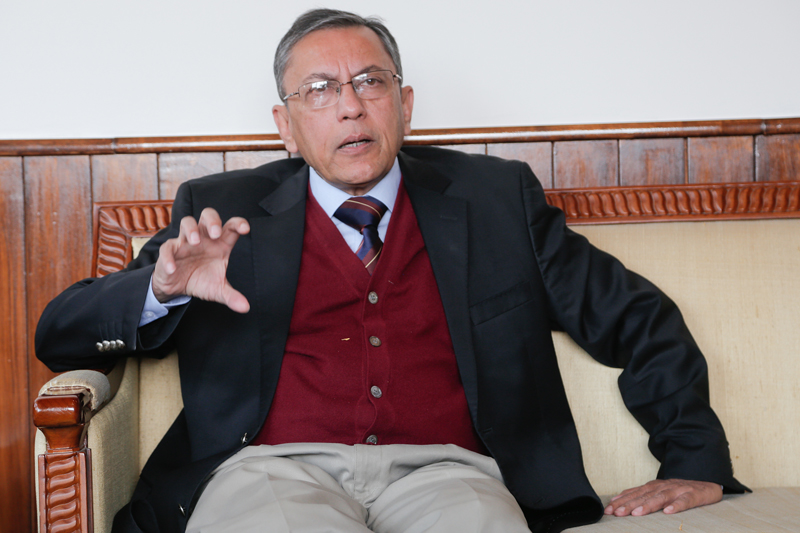
Is Nepal-India relation back on an even keel after recent exchange of high level political visits? If so, what accounts for the persistent anti-Indian sentiments in Nepal? Why is India not keen on trilateral cooperation? And how will India help Nepal resolve the difficulties surrounding India’s decision to ban 500, 1000 denomination notes? These were among the other issues discussed as Subhash Ghimire, Guna Raj Luitel and Mahabir Paudyal talked to Indian ambassador to Nepal Ranjit Rae.
How do you evaluate the recent Nepal visit of Indian President Pranab Mukherjee?
This was a presidential visit after 18 years. So it was a significant visit. If you see the programs covered during the visit, it touched upon every aspect of relationship between the two countries—cultural, religious, economic and political relationship, links through Nepal with ex-servicemen and so on. Thus it was by far the most significant visit. And both sides had made preparations in great depths. We had a joint commission meeting before the visit, which had taken some important decisions. I would say that this visit has strengthened the relation between the two countries.
It has come out that Prime Minister Narendra Modi is also keen to visit some religious sites like Muktinath in Nepal. When should we expect him?
I know Prime Minister Modi is keen to come to Nepal. He is not only interested in visiting Muktinath, but also Lumbini and Janakpur. We’ll work for suitable opportunity when this can happen. I understand that Nepal is hosting BIMSTEC summit next year. Perhaps that could be an opportunity for such a visit. PM Modi has very warm feelings for Nepal.
Last one year has seen a rise in anti-India sentiments in Nepal. Why do you think that is the case?
I think we need to break down what you mean by “anti-India” sentiment. This so-called anti-India sentiment is not everywhere in Nepal. I have traveled to Nepal’s hills and mountains and districts in the Tarai plains. And I have been to these places during the difficult times of relationship between the two countries. I have felt warmth for India among the people in every place. Thus I would not say there is anti-India sentiment among the people. But this sentiment is certainly prevalent in certain sections of the society and in some geographical areas, mainly around the capital city. As for why such sentiment exists, I think there is more than one factor.
The asymmetry in the size of the two countries and the fact that a lot of Nepal’s trade, investment and other things are directly linked to India, people tend to resent that a little.
Second, when you have this kind of asymmetrical relationship, it is easy to deflect attention from problems within by creating an external threat. It is always easy to claim that all this is done by somebody else. This seems to benefit certain political groups.
Despite all this, I am confident that at people’s level, India and Nepal share very warm relation. What is strange about anti-India thing is when the same party is in the government, anti-India sentiment is not expressed but when it is in opposition the party becomes anti-Indian. This bothers us but India, as a whole, has very friendly feelings towards Nepal.
During Prime Minister Pushpa Kamal Dahal’s India visit in September, the two sides agreed to form a Joint Oversight Mechanism in which you represent India. What is the progress?
The Joint Oversight Mechanism was one of the highlights of prime minister’s visit to India.
I have been here for more than three years now. The general feeling here is that India takes up projects but does not deliver. When I talk to our people, they say there are many problems on the Nepal side and therefore the projects are not moving forward. And then the media gets into it. So what the two countries decided during the prime minister’s visit was to create a forum where all stakeholders can participate and thrash out the problems because, then, the stakeholders will get to sit face to face and identify the bottlenecks and move forward. It is a practical idea. The first meeting will be held by the end of this month. This is a very good initiative taken by the two governments and will surely contribute to smoother implementation of the projects.
Let’s discuss the demonetization issue. This has created many problems even in Nepal. What can be done?
Yes, there are issues with IRs 500 and 1,000 notes in Nepal. The government of India is committed to resolving this issue and is working with the authorities in Nepal for the same, with the least inconvenience to the people. This aside, you should also understand that 500 and 1,000 notes were introduced in Nepal in a limited amount. Thus those who work in India may come back home with 500/100 notes amounting up to IRs 25,000. But the reverse journey of these notes is not permitted. You bring this money either to spend in Nepal by exchanging it with local currency exchange agencies or give them to the banks. What needs to be underscored is that Indian currency is not a legal tender in Nepal and cannot be used legally for commercial or other transactions.
Thus the quantum of money that will be involved in this is not really large. But the reality is different. Many people living along the border areas, the industries and companies with Indian employees, workers coming from India and even individuals in Nepal keep the Indian currency. This is why we have constituted a task force in the Ministry of Finance of India that will look into all these aspects, their ramifications and come up with some reasonable realistic solution to the problem keeping in view both the legal positions as well as practical realities.
Our embassy staff has been in touch with Nepal Rastra Bank to work on the modalities that will be used in Nepal to mop up these notes. We have two big concerns regarding this. We are concerned about fake Indian currency. We don’t want it to go to India.
Second, given that we have open border, we don’t want black money to come to Nepal from India and get exchanged with Nepali banking system. We are fully aware of these realities. We hope a satisfactory solution will be found. Nepali PM has spoken to PM Modi on this issue and directives have been given to find mutually acceptable solutions.
Do you suggest that those with limited numbers of Rs 500-1,000 notes need not worry?
Broadly, yes. The general public with limited amount of Indian cash need not worry very much. We will try to find a solution whereby the honest people whose livelihood is dependent on small money that they bring from India will not be penalized.
There has been outcry against demonetization in India as well. Do you see the possibility of Indian government reviewing some aspects of this decision?
I don’t see any such possibility because this is a major step taken by the government of India to curb black money, to remove fake currency in circulation and to build a much more transparent system and to encourage the use of plastic money rather than cash transactions. The step has caused some difficulties in India, as in Nepal, but these difficulties will be addressed day by day. But this policy as a whole will prove to be very beneficial to our system.
The revision of 1950’s treaty and regulation of open border are also said to on the agenda of the next meeting of Eminent Persons Group (EPG). What can we expect from these meetings?
I don’t have any official information as to what EPG is doing other than the fact that the meetings have been held. As far as the 1950 treaty is concerned, we are always open.
Our prime minister has said it categorically that we are willing to look into any proposal that the government of Nepal will bring, whether relating to scrapping or amending, or reviewing the treaty. We will be happy to consider all options. I hope EPG will come up with some concrete recommendations.
As for the open border, this is the first time I’m hearing about it. I believe open border is a fundamental aspect of close relationship between Nepal and India. I am not aware if the government of Nepal is seriously thinking about any change in the system, for it will have major implications, possibly more so for Nepal than for India. I would imagine all political, economic and cultural aspects would be considered before taking decision on this issue.
Having said that, I am also mindful that open border creates problems. Some people choose the open borders to carry out the activities that are harmful to both India and Nepal. To address this, we have established a good system of cooperation with Nepali security forces and administrative functionaries on both sides. We have pretty robust system and it is working well. My personal view is that open border is a great asset of our relationship. But we are willing to look at any suggestion the government of Nepal has.
For last three and plus years I have been here, this issue has never been raised in any of the official meetings with me.
It is said concept of trilateral cooperation between India, Nepal and China is not moving ahead because India is not keen. Is that the case?
Let me inform you that India was the country which had first raised the issue of trilateral cooperation and connectivity back in 2003. But there was no response from Nepali side.
Now we need to look into this issue in many ways and in great details. We are improving the border infrastructure between India and Nepal. Nepal is also working to improve infrastructures with China. In a sense, once these border infrastructures are improved, we will actually be creating the groundwork for cooperation between three countries for trilateral connectivity. There is another side to it, that of economy. Seventy percent of Nepal’s trade with China comes through Kolkata, not through China border. So the question is: is it going to be economically and financially viable for companies to shift this trade happening through sea-routes to land routes? We are open to discussing all possibilities but a lot work and studies need to be done on this. You also need to consider if this is the topmost priority for Nepal for its trade and development at the moment. Since two-thirds of Nepal’s trade is with India, and India is the largest investor, your focus should be on improving trade facilitation measures along Nepal-India borders.
Some leaders in Nepal are accused of being close to India while others are said to be close to China. What do you make of this tendency?
You have two giant neighbors on two sides. So I can understand Nepal’s predicament.
But Nepal needs to benefit from its relation with both the countries. It needs to think how it can benefit the most from each neighbor. You should not take relation with one country as substitute for another.
How do you view the process of constitution amendment in Nepal?
Our view on Nepal’s constitution has been consistent. This was expressed most recently during President Mukherjee’s visit. We see that for durable stability and development, Nepal needs to take along all sections of the society. We are very much encouraged by the recent discussions that are going on to forge an understanding among the major parties for constitution amendment.
It is said India has particular interest in revision of federal boundaries, citizenship and language issue.
Like I said, our basic concern is there should be peace and stability here. And in order to achieve this, Nepal should take everyone on board the process of constitution implementation. It needs to address the grievances of the parties and groups through dialogues and mutual understanding. If things are allowed to fester, it may lead to even more difficult problems, which won’t be good for Nepal or India. We have no prescription as to what should be done on citizenship and how disputes on federal boundaries should be resolved. We only hope that the differences will be resolved to the mutual satisfaction of the parties concerned.
As we celebrate a decade of the signing of the Comprehensive Peace Agreement (CPA), how does India view the ongoing transition in Nepal?
The signing of the CPA was an important step towards ending the insurgency and establishing durable peace and stability in Nepal. There are not many examples in the world where the erstwhile insurgents became part of the political mainstream and came to power through democratic processes. India has been supportive of the process all through and would continue to extend all assistance for enduring peace, stability and socio-economic progress of Nepal.
What is your take on the debate over inclusion of Hindi as national language in the constitution?
It is for Nepal to decide. Nepali is a language which is recognized by the Indian constitution. I don’t speak Nepali. So most of my speeches and conversations take place in Hindi language. I am happy to say that Hindi is the language that a majority of people in Nepal also understand and speak. One of our goals is to promote the use of Hindi worldwide.
It is said India does not deal with Nepal at political level but looks into Nepal issue through the eyes of bureaucrats assigned to oversee Nepal.
This is a myth propagated by some sections of society in Nepal. The government of India works through certain systems and procedures. Nepal-India relation is guided by established norms and policies. No officials can go against those policies and norms.
There can be differences in terms of how you implement those policies. But policies remain consistent. Thus to say that diplomats and bureaucrats are doing something different from what the political leaders want is a complete misreading and misunderstanding of Indian statecraft.
How has your experience of working in Nepal been so far?
For an Indian diplomat, this is the best job because of the nature of relationship between the two countries. The past couple of years have been a bit of roller-coaster here. But I am happy that the relationship has now come back to good position. There is mutual trust and goodwill and the commitment to further step up our engagement for the benefit of people of both countries. Working here as ambassador has been very rewarding but it is also challenging. Nepal is a beautiful country with great potential, yet one of the poorest.
I think I have tried to make sure that this potential gets exploited to some extent. Nepal needs development. India wants to see that happen.
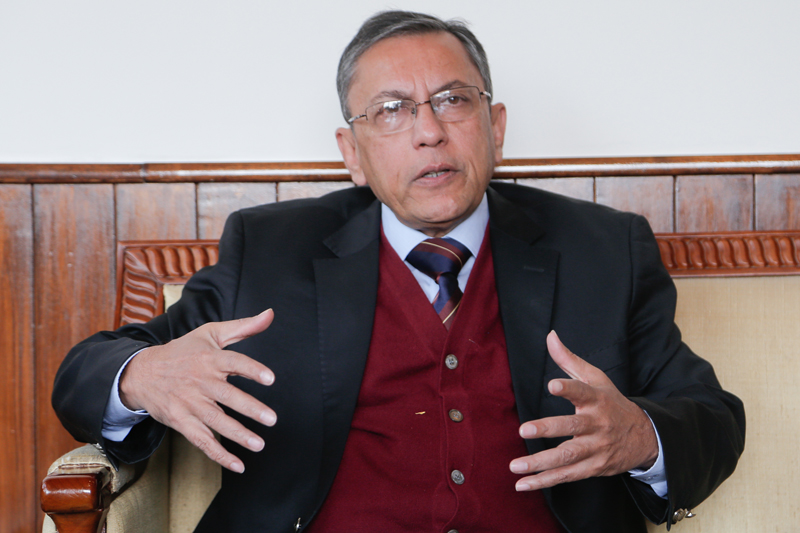
You May Like This

Mismatch in Nepal-India trade figures indicates huge informal trade
KATHMANDU, April 13: There is a huge mismatch between Nepal’s total imports from India and the southern neighbor’s exports to Nepal,... Read More...
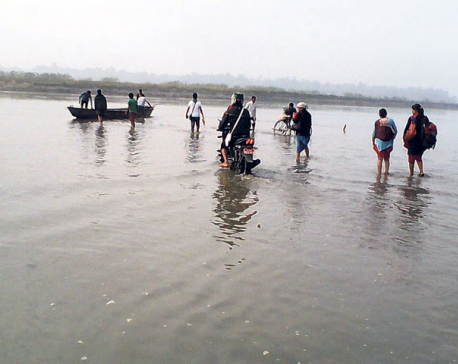
Forgotten citizens along the Nepal-India border
DANG, Nov 23: Seventeen-year-old Sita Pariyar of Bhauwa checkpoint along the Nepal-India border got bitten by a snake on Saturday morning. Read More...

Nepal-India officials discuss border management issues
CHITWAN, June 17: The security officials of Nepal and India held discussion on border pillars. The meeting reviewed the... Read More...







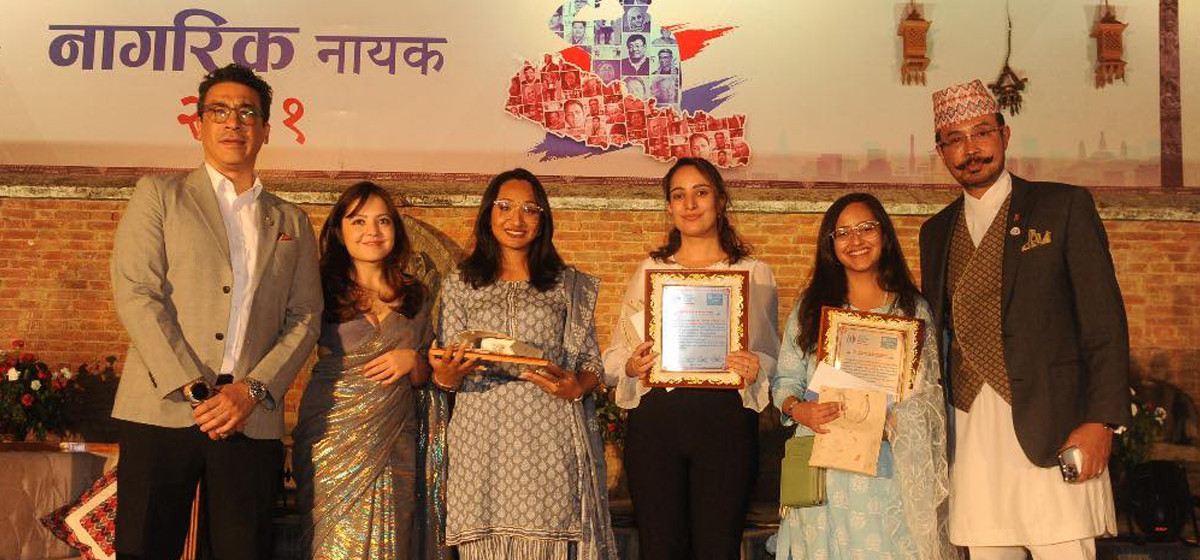
Just In
- Qatar Emir meets PM Dahal, bilateral agreement and MoUs signed between Nepal and Qatar
- Employee involved in distribution of fake license transferred to CIAA!
- Youth found dead in a hotel in Janakpur
- CM Kandel to expand cabinet in Karnali province, Pariyar from Maoist Center to become minister without portfolio
- Storm likely to occur in Terai, weather to remain clear in remaining regions
- Prez Paudel solicits Qatar’s investment in Nepal’s water resources, agriculture and tourism sectors
- Fire destroys 700 hectares forest area in Myagdi
- Three youths awarded 'Creators Champions'



_20240423174443.jpg)





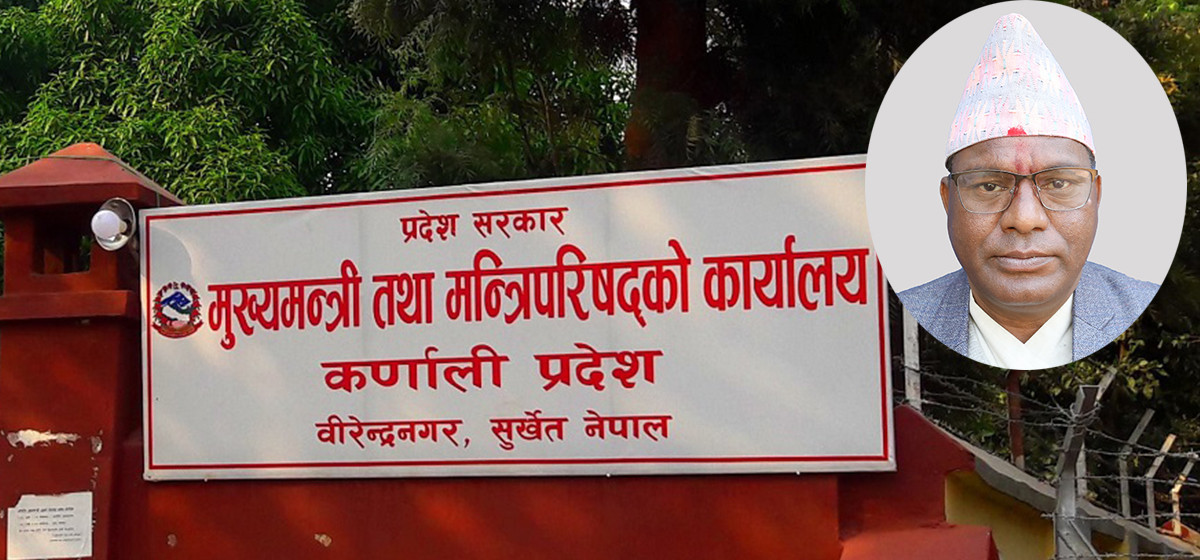

Leave A Comment